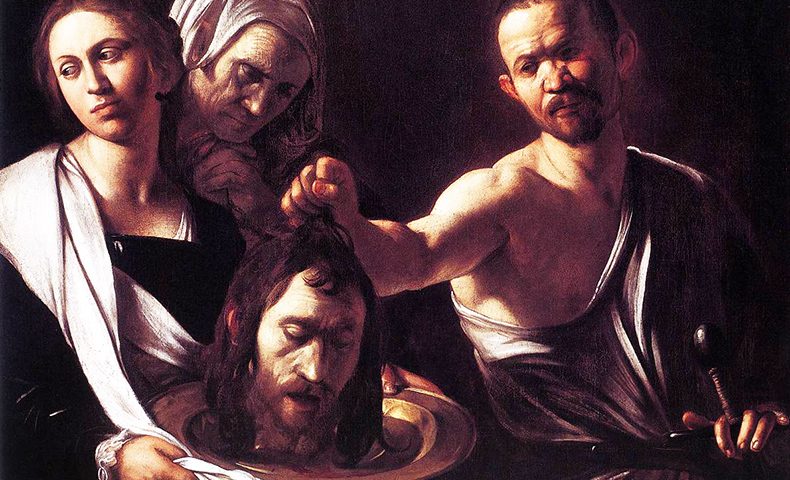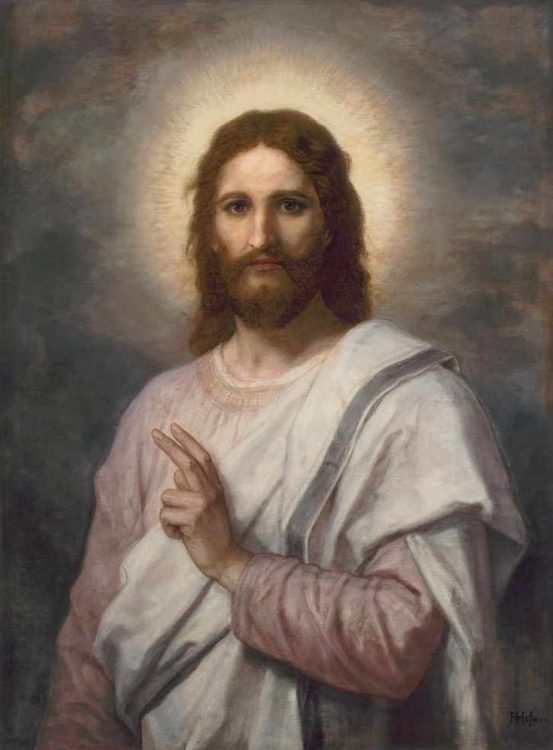GOSPEL READING: Matthew 14:1-12
1 At that time Herod the tetrarch heard about the fame of Jesus; 2 and he said to his servants, “This is John the Baptist, he has been raised from the dead; that is why these powers are at work in him.” 3 For Herod had seized John and bound him and put him in prison, for the sake of Herodias, his brother Philip’s wife; 4 because John said to him, “It is not lawful for you to have her.” 5 And though he wanted to put him to death, he feared the people, because they held him to be a prophet. 6 But when Herod’s birthday came, the daughter of Herodias danced before the company, and pleased Herod, 7 so that he promised with an oath to give her whatever she might ask. 8 Prompted by her mother, she said, “Give me the head of John the Baptist here on a platter.” 9 And the king was sorry; but because of his oaths and his guests he commanded it to be given; 10 he sent and had John beheaded in the prison, 11 and his head was brought on a platter and given to the girl, and she brought it to her mother. 12 And his disciples came and took the body and buried it; and they went and told Jesus.
Meditation: Do you ever feel haunted by a past failure or a guilty conscience? King Herod, the most powerful and wealthy man in Judea, had everything he wanted, except a clear conscience and peace with God. Herod had respected and feared John the Baptist as a great prophet and servant of God. John, however did not fear to rebuke Herod for his adulterous relationship with his brother’s wife. He ended up in prison because of Herodias’ jealousy. Herod, out of impulse and a desire to please his family and friends, had John beheaded. Now his conscience is pricked when he hears that all the people are going to Jesus to hear his message of repentance and to see his mighty works. Herod is now haunted by the thought that the prophet he murdered might now be raised from the dead!
A sign of vanity and cowardice
Unfortunately for Herod, he could not rid himself of sin by ridding himself of the man who confronted him with his sin. Herod’s power and influence was badly flawed. He could take a strong stand on the wrong things when he knew the right. Such a stand, however, was a sign of weakness and cowardice. Where do you get the strength of will and heart to choose what is right and to reject what is bad?
God is our help and our strength
The Lord Jesus gives grace and help to the humble, to those who acknowledge their weaknesses and their sinfulness, and who look to God for his mercy and pardon, wisdom and strength. His grace and pardon not only frees us from a guilty conscience, it enables us to pursue holiness in every area of our lives, in our thoughts and intentions as well as our words and actions.
Fight fear with faith
God’s grace enables us to fight fear with faith and to overcome the temptation to compromise good with evil. Do you rely on God’s grace and help to choose his way of holiness and to reject whatever would weaken your faith and loyalty to Jesus Christ?
Heavenly Father, form in me the likeness of your Son Jesus that I may imitate him in word and deed. Help me to live the gospel faithfully and give me the strength and courage I need to not shrink back in the face of hardship and temptation.
Psalm 67:1-7
1 May God be gracious to us and bless us and make his face to shine upon us, [Selah]
2 that your way may be known upon earth, your saving power among all nations.
3 Let the peoples praise you, O God; let all the peoples praise you!
4 Let the nations be glad and sing for joy, for you judge the peoples with equity and guide the nations upon earth. [Selah]
5 Let the peoples praise you, O God; let all the peoples praise you!
6 The earth has yielded its increase; God, our God, has blessed us.
7 God has blessed us; let all the ends of the earth fear him!







